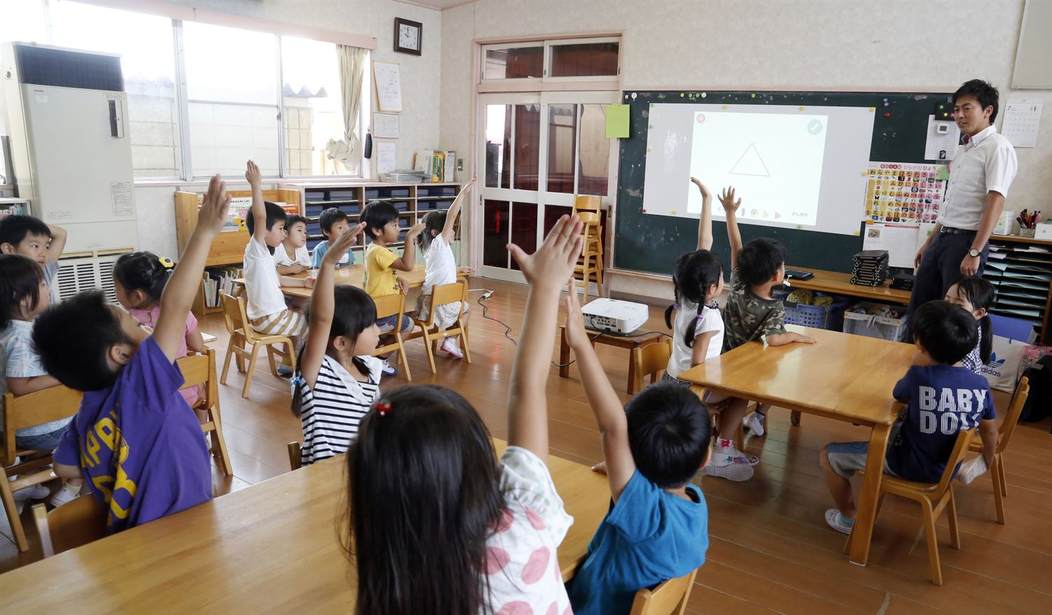On May 15, 2020, my husband and I walked into a Maryland hospital delivery ward, our faces fully masked but hiding big smiles. I was scheduled to deliver my second baby boy. He was one of the 3.6 million babies born last year into a world of uncertainty brought on by the coronavirus.
A potential silver lining to the very dark coronavirus cloud was that our nation might experience a baby boom. Unfortunately, a bump in births did not materialize; births fell yet again in 2020 to a low not seen since 1979. New life is a mark of a growing and thriving society. We must find a way to address the economic and cultural concerns discouraging women in their prime childbearing years from having children. Flexibility may be the key.
Declining birth and fertility rates in the U.S. are not new. Births have been on a downward trend for the past 30 years, but 2020 could have been different. Sheltering in place for weeks and exclusively working remotely for months should have resulted in more than TikTok videos and Netflix binging. Instead of a boom, bounce, or bump, the number of births last year declined by 4.4 percent from 2019, more than double the two-percent average annual decline of the previous year.
Birthrates fell among all ranges of women, in the childbearing 15 to 44 age group. Most concerning were birth rates among Millennial women (born between 1981 and 1996) who account for the majority of women making babies; birth rates for 30-somethings fell by between 2 and 4 percent, while those for 20-somethings decreased by between 4 and 6 percent.
Recommended
Millennials are at a prime age to be starting and expanding their families but are making the decisions to delay pregnancies beyond their peak childbearing years. This has the potential for many to experience fertility issues or forgo children altogether.
Why aren’t Millennials having babies? Experts suggest that Millennials are scarred. Starting careers during the Great Recession and saddled with student loan debt, this generation suffered significantly-high unemployment rates and lost income. From 2007 through 2017, the average Millennial missed out on13 percent of total earnings ($25,000). Millennials had just begun to recover when the pandemic hit. Millions of them were driven out of work, especially since job losses hit the dining and leisure industries hardest, which tend to employ younger workers.
Millennial women are likely making fertility decisions in light of current economic conditions, past hardships, and future employment prospects. They consider how time taken out of the workforce after the baby is born, forgone opportunities and promotions, and missing out on the accumulation of skills and experience may disrupt their career advancement. They also consider lost wages and the increased costs that can consume a significant portion of their disposable income, from diapers, clothes, and formula to childcare services. Unemployment is also a factor behind why women in developed countries have delayed baby-making during economic downturns.
Something is different now. Birth rates have declined nearly each year since the Great Recession in 2008 except in 2014. Household incomes hit a record-high in 2019 and women’s unemployment record lows, yet birth rates still fell. It isn’t just economics keeping MIllennials from starting families.
One hope is that Millennials may see new paradigms for balancing work and family life as lasting—and positive—legacy of COVID closures.
The shift to remote work has demonstrated to employers that many jobs can be done from home without losing productivity and that travel-intensive jobs may not require workers to be on the road as often. If workplace norms continue to evolve to embrace flexible work, this will create desired opportunities for many women. Gig work and independent contracting also offer flexible earning opportunities, which is why women overwhelmingly engage in the gig economy.
Millennials indicate they want flexibility as a compliment or alternative to traditional jobs. It could free Millennial women to pursue motherhood and careers as well as helping them pay down debt and build financial security.
Policymakers should not get in the way of workplace progress. Pushing more workers into traditional 9-to-5 work arrangements for the sake of boosting unions will kill gig economy jobs and flexible work. This is the wrong course at the wrong time.
I know firsthand the importance of flexibility. I work for a women’s educational organization that has been 100 percent virtual for years. Remote work allows me to schedule my work activities each day to balance shared caregiving with my husband for our toddlers and elementary-age son. Otherwise, like many Millennial women, I might have made different decisions. As workplaces increasingly embrace flexibility, government should be a complement to progress—not a labor pain.
Patrice Onwuka is a mother of three boys and director of the Center for Economic Opportunity at Independent Women's Forum. She and her family live in Maryland. Follow her on Twitter: @PatricePinkFile.

























Join the conversation as a VIP Member